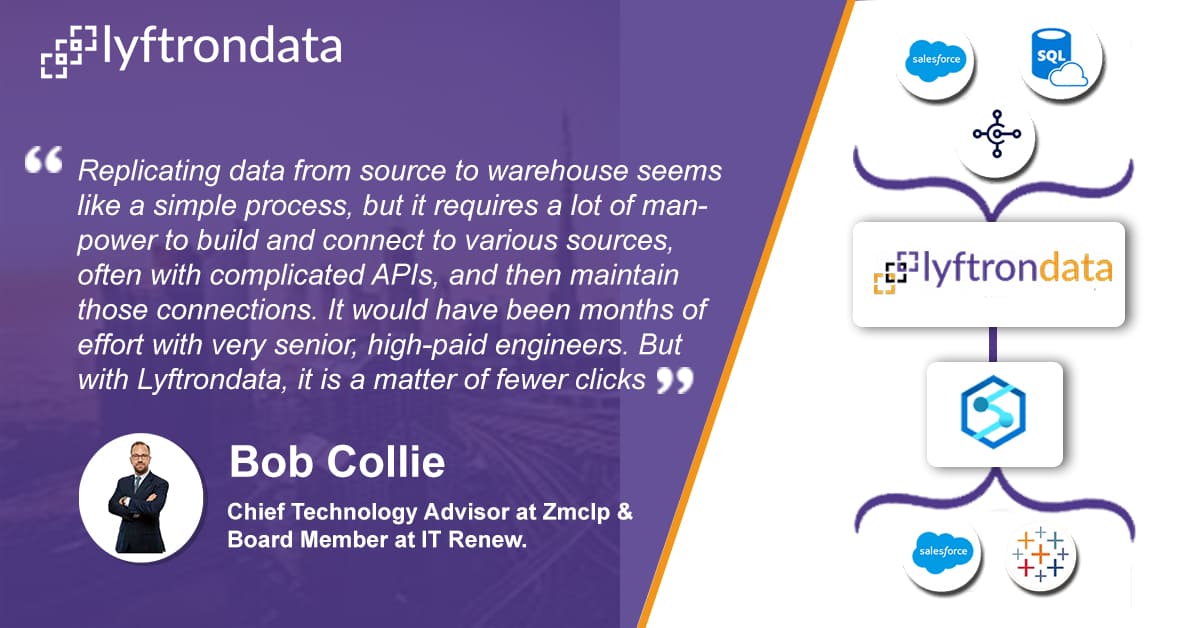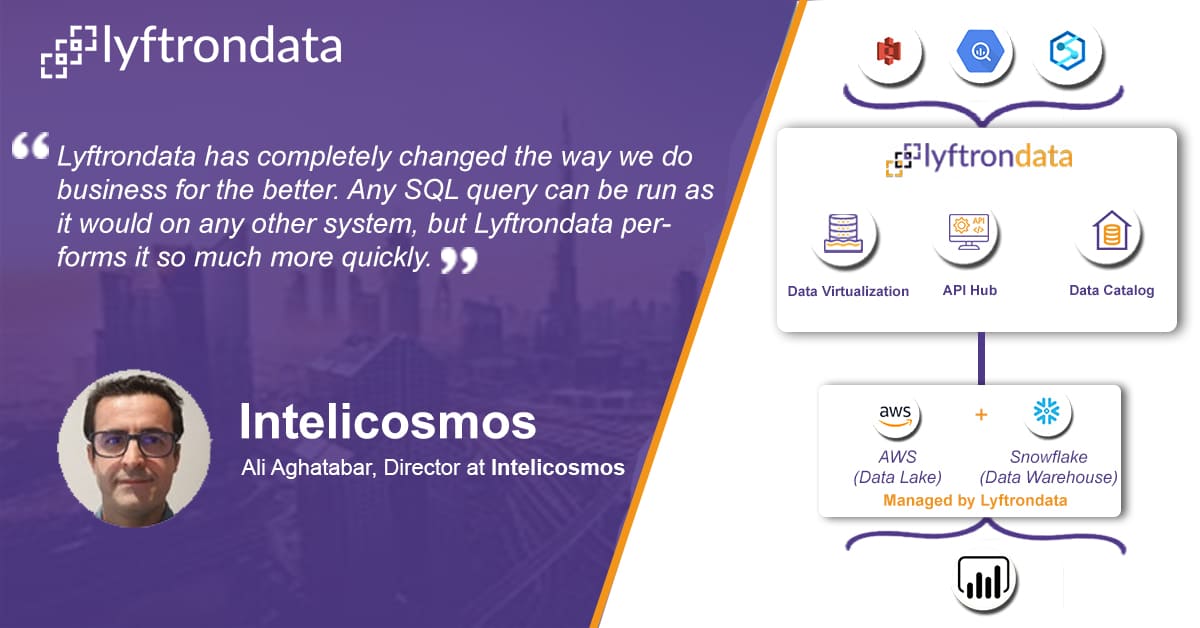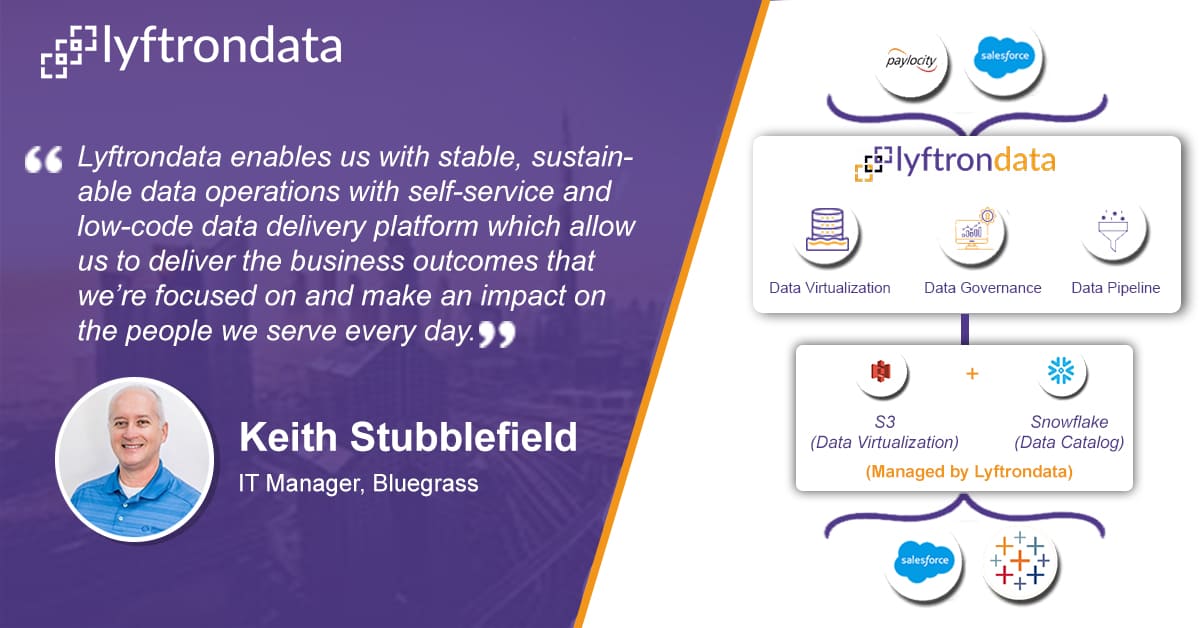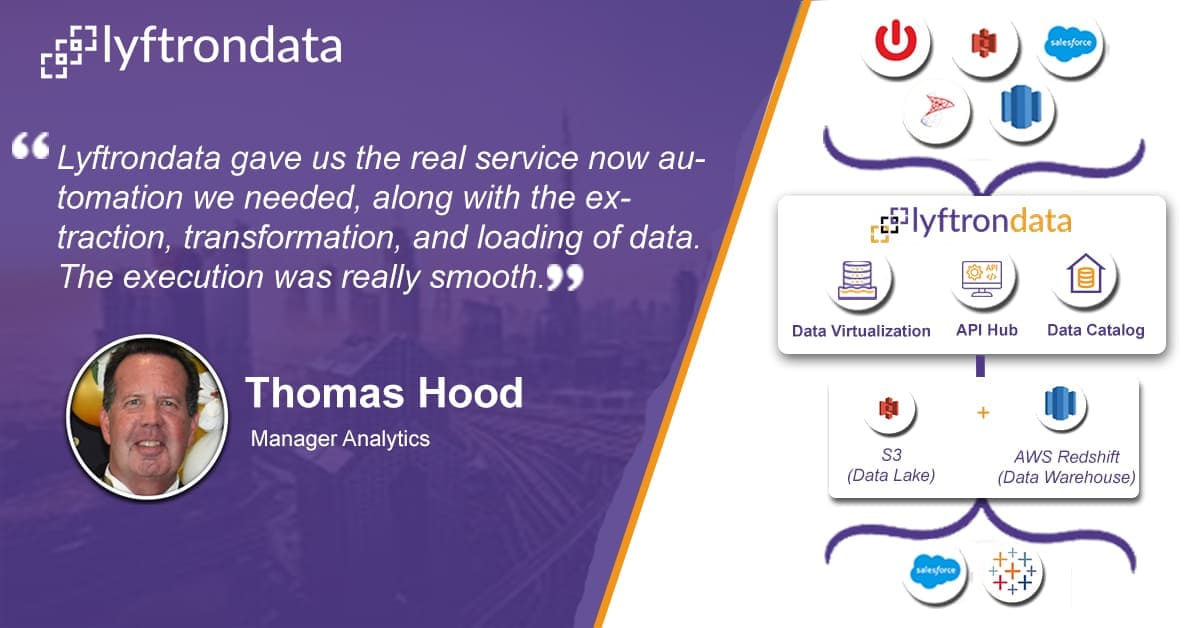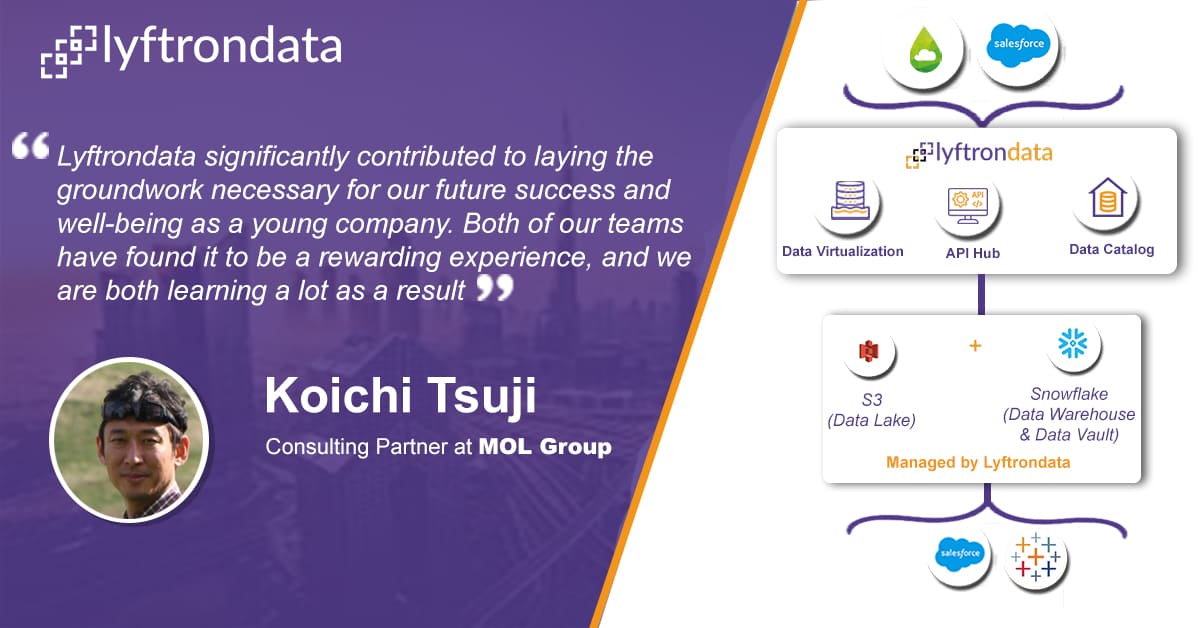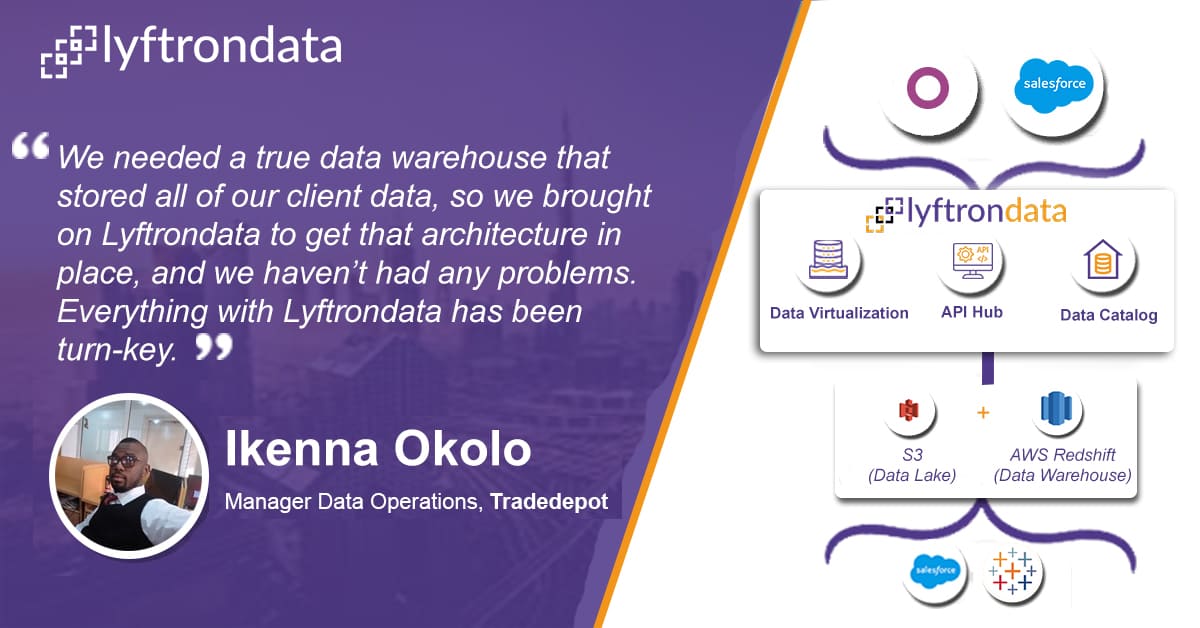200X Acceleration at
1/10th of the cost
Zero
maintenance
No credit card
required
Zero coding
infrastructure
Multi-level
security
Simplify NuoDB integration in
4 simple steps
Create connections
between NuoDB and targets.
Prepare pipeline
between NuoDB and targets by selecting tables in bulk.
Create a workflow
and schedule it to kickstart the migration.
Share your data
with third-party platforms over API Hub

Why choose Lyftrondata for NuoDB Integration?


Simplicity
Build your NuoDB pipeline and experience unparalleled data performance with zero training.

Robust Security
Load your NuoDB data to targets with end-to-end encryption and security.

Accelerated ROI
Rely on the cost-effective environment to ensure your drive maximum ROI.

Customer's Metrics
Track the engagement of your customers across different channels like email, website, chat, and more.

Improved Productivity
Measure the performance of your team and highlight areas of improvement.

360-degree Customer View
Join different data touch points and deliver personalized customer experience.
Hassle-free NuoDB integration to the platforms of your choice
Migrate your NuoDB data to the leading cloud data warehouses, BI tools, databases or Machine Learning platforms without writing any code.
Hear how Lyftrondata helped accelerate the data journey of our customers
FAQs
What is NuoDB?
NuoDB is a cloud-native distributed SQL database designed to deliver the scalability and elasticity typically associated with NoSQL databases, while maintaining the ACID (Atomicity, Consistency, Isolation, Durability) properties of traditional relational databases. It is specifically built for modern cloud architectures, enabling it to scale horizontally across multiple servers and data centers without sacrificing SQL compatibility or transactional integrity.
What are the features of NuoDB?
Distributed Architecture:
NuoDB uses a peer-to-peer, distributed architecture that allows the database to scale horizontally by adding more nodes (compute and storage resources) without downtime. It operates in a multi-tier model, consisting of transaction engines (processing queries) and storage managers (handling persistent storage).
Elastic Scalability:
NuoDB is designed to scale elastically across multiple nodes or cloud instances, allowing it to handle large volumes of transactions and data while automatically distributing workloads. It can scale out (add more nodes) and in (remove nodes) dynamically, making it a good fit for cloud environments with varying workloads.
SQL Compatibility:
NuoDB supports the standard SQL interface, making it easy for developers and applications to interact with the database using familiar SQL queries. This compatibility enables it to function as a drop-in replacement for traditional relational databases in many use cases.
Cloud-Native Design:
NuoDB is optimized for cloud environments, supporting hybrid, multi-cloud, and on-premise deployments. It integrates well with containers, microservices, and orchestration platforms like Kubernetes, making it ideal for organizations migrating to or building on the cloud.
What are the shortcomings of NuoDB?
Performance Overhead:
Distributed Coordination: NuoDB's architecture relies on coordination between Transaction Engines (TEs) and Storage Managers (SMs). This coordination can introduce overhead, especially for write-heavy workloads. The need to synchronize between nodes in a distributed system can slow down operations compared to traditional single-node databases.
Latency in Distributed Setups: When running across multiple geographically distributed nodes, latency between the nodes can affect query performance, especially for real-time applications that require low-latency transactions.
Write Scalability Limitations:
Write Performance Bottleneck: Although NuoDB supports elastic scalability, its performance with write-heavy workloads can suffer due to the need to maintain consistency across distributed nodes. The system ensures ACID compliance, which means that transactional integrity must be maintained even across distributed environments, potentially slowing down write operations compared to NoSQL databases designed for eventual consistency.
Impact on Large Transactions: For applications with large or complex write transactions, the performance may degrade, as more resources are required to manage these across multiple nodes.
Cost:
High Initial Cost: NuoDB’s distributed architecture often requires multiple nodes to achieve the desired scalability and availability. This makes the initial deployment more expensive compared to simpler, centralized database solutions.
Scaling Cost: While NuoDB can scale elastically, the cost of scaling out (adding more transaction engines and storage managers) may become significant for larger deployments, particularly when running in cloud environments where resource usage directly impacts costs.
Make smarter decisions and grow your sales with Lyftrondata NuoDB integration





